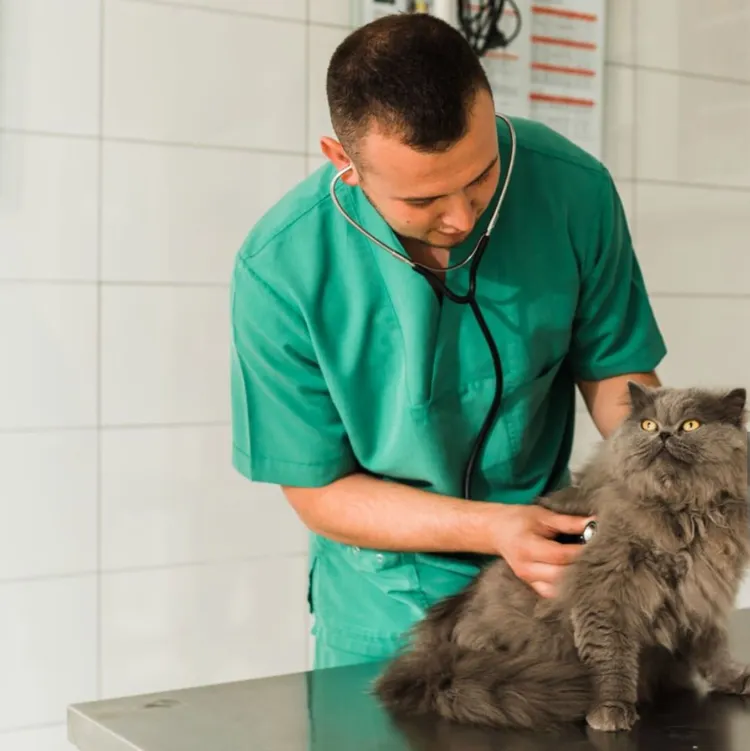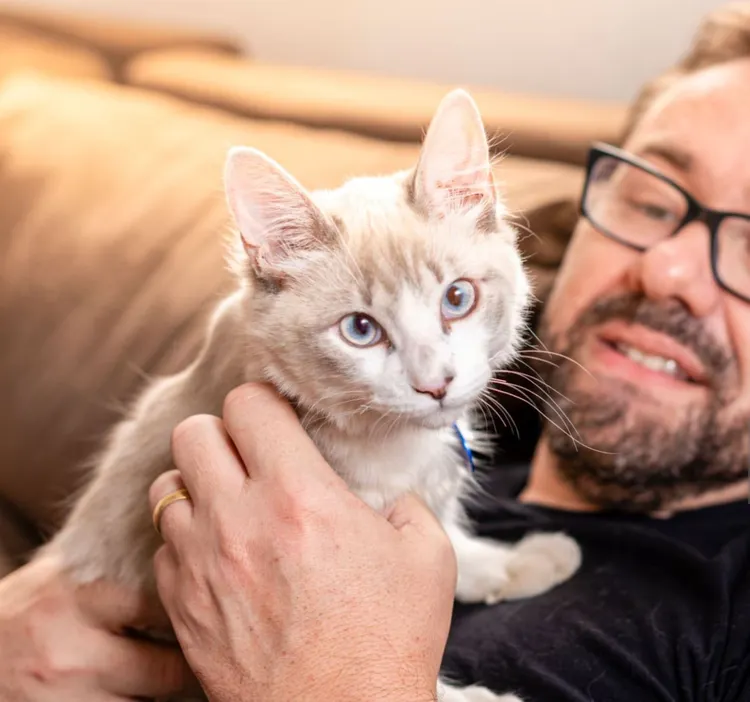Cancer is a serious concern in cats of all ages, though it becomes more common as they get older. Early detection can significantly improve the chances of successful treatment, which is why it’s essential for cat owners to recognize potential signs and seek veterinary advice if unusual symptoms arise. Here’s what to look out for when monitoring your cat’s health and when to consult your veterinarian.
1. Introduction: Understanding Cancer in Cats
Cancer affects many cats, especially as they age, with early detection being key to managing the disease. Regular check-ups and keeping a close eye on your cat’s health can help in spotting early signs. Certain symptoms may indicate cancer, though they can also be linked to other health issues. If you notice any unusual changes, it’s essential to seek veterinary advice promptly.
2. Common Signs of Cancer in Cats
Weight Loss
One of the most common signs of cancer in cats is unexplained weight loss, which can occur even if the cat is eating normally. Sudden weight changes should never be ignored, as they may indicate underlying health issues, including cancer.
Lumps or Bumps
Not all lumps are cancerous, but any new growths should be examined by a veterinarian, especially if they’re changing shape, size, or texture. This is especially relevant for older cats, as certain lumps may be indicative of tumor growth.
Loss of Appetite and Lethargy
Cancer can cause noticeable changes in a cat’s energy levels and appetite. A cat with cancer may lose interest in food, water, or regular activities, showing signs of increased lethargy or unwillingness to engage.
Difficulty Breathing or Persistent Coughing
Respiratory issues, such as difficulty breathing or persistent coughing, may be associated with cancers of the lungs or respiratory system. These symptoms, especially if they persist, warrant a prompt vet visit.
Sores or Wounds That Won’t Heal
Persistent sores or lesions, especially around the mouth, nose, or eyes, may be early signs of skin or oral cancer. If your cat has any wounds or sores that don’t seem to heal, it’s important to get them checked by a veterinarian.
3. Types of Cancer That Affect Cats
Cats can develop several types of cancers, each with different symptoms:
- Lymphoma: One of the most common cancers in cats, affecting lymph nodes, intestines, and sometimes the respiratory system. Symptoms may include weight loss, vomiting, and difficulty breathing.
- Mammary Cancer: Often found in unspayed female cats, mammary cancer presents as lumps or swelling near the abdomen. Early detection is crucial for successful treatment.
- Squamous Cell Carcinoma: This type of skin cancer commonly affects areas exposed to the sun, such as the nose, ears, and around the eyes, leading to sores or red, raised patches.
Each type of cancer may present unique symptoms, so it’s essential to monitor your cat for any health changes.
4. When to See a Vet
If any of these symptoms are noticeable or persistent, seek veterinary advice as soon as possible. While not all these signs mean cancer, they may indicate other health issues that require attention. Routine check-ups can help identify underlying conditions before they become severe, so scheduling regular vet visits is an essential part of pet ownership.

5. Diagnosis and Treatment Options
Veterinarians use a range of diagnostic tools to assess whether a cat has cancer. Common diagnostic methods include:
- Biopsy: A tissue sample from any growth or tumor can determine if the cells are cancerous.
- Blood Work: Blood tests can show abnormalities that might suggest cancer.
- Imaging Tests: X-rays, ultrasounds, and MRIs provide detailed views of internal organs and can reveal tumors or abnormal growths.
Treatment options depend on the type and stage of cancer and may include surgery, chemotherapy, or radiation. For some cats, palliative care may be recommended to manage symptoms and provide comfort.
6. Importance of Early Detection
Early detection greatly improves treatment outcomes for cats with cancer. Being familiar with your cat’s normal behavior and body condition allows you to spot changes more easily. Routine health checks, whether at home or with a vet, are essential for detecting abnormalities early on.
7. Support for Pet Owners
If your cat is diagnosed with cancer, there are ways to provide additional support:
- Diet Adjustments: A balanced diet can support your cat’s immune system and overall health.
- Medication: Your vet may prescribe medications to manage pain or other symptoms.
- Comfortable Environment: Ensuring your cat has a calm, stress-free environment is essential for their well-being.
Seeking support from friends, family, or online communities can also be helpful. Many pet owners find comfort in sharing their experiences and learning from others.

8. Conclusion
Cancer in cats is a serious condition, but with vigilance and early detection, many cases can be managed effectively. By observing your cat closely and consulting with a vet at the first sign of unusual symptoms, you can increase the likelihood of successful treatment and improve your cat’s quality of life. Remember, every cat is unique, and being attuned to their health and behavior is the best way to provide them with a happy, healthy life.



